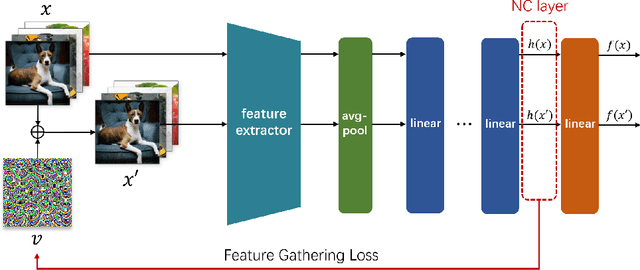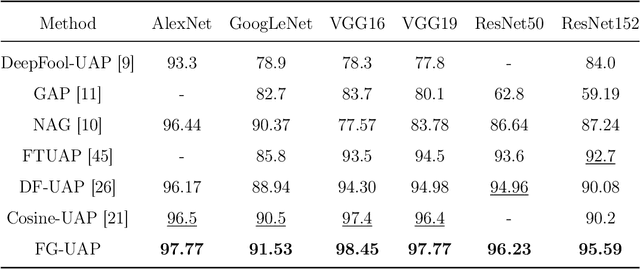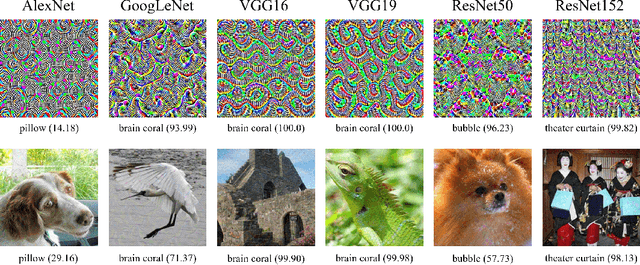FG-UAP: Feature-Gathering Universal Adversarial Perturbation
Paper and Code
Sep 27, 2022



Deep Neural Networks (DNNs) are susceptible to elaborately designed perturbations, whether such perturbations are dependent or independent of images. The latter one, called Universal Adversarial Perturbation (UAP), is very attractive for model robustness analysis, since its independence of input reveals the intrinsic characteristics of the model. Relatively, another interesting observation is Neural Collapse (NC), which means the feature variability may collapse during the terminal phase of training. Motivated by this, we propose to generate UAP by attacking the layer where NC phenomenon happens. Because of NC, the proposed attack could gather all the natural images' features to its surrounding, which is hence called Feature-Gathering UAP (FG-UAP). We evaluate the effectiveness our proposed algorithm on abundant experiments, including untargeted and targeted universal attacks, attacks under limited dataset, and transfer-based black-box attacks among different architectures including Vision Transformers, which are believed to be more robust. Furthermore, we investigate FG-UAP in the view of NC by analyzing the labels and extracted features of adversarial examples, finding that collapse phenomenon becomes stronger after the model is corrupted. The code will be released when the paper is accepted.
 Add to Chrome
Add to Chrome Add to Firefox
Add to Firefox Add to Edge
Add to Edge